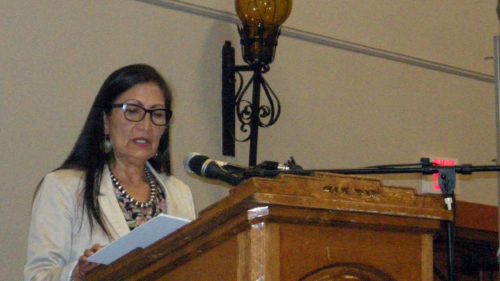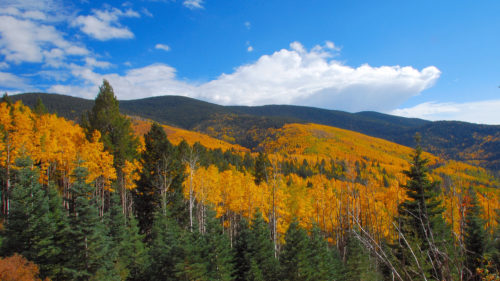ALBUQUERQUE — President Donald Trump has signed into law the Natural Resources Management Act, a package that protects new wilderness within the Rio Grande del Norte and Organ Mountains-Desert Peaks National Monuments.
Trump signed the measure on Tuesday. Nationwide, the public lands package adds more than 1.3 million acres of public land to the National Wilderness Preservation System, 621 miles of rivers to the National Wild and Scenic Rivers System, and reauthorizes the Land and Water Conservation Fund.
The legislation also includes dozens of other bipartisan public lands measures that would conserve some of our nation’s wildest lands and rivers.
“Having this lands package signed into law is a great day for public lands in New Mexico and nationwide,” said Jesse Deubel, executive director of the New Mexico Wildlife Federation. “Future generations of New Mexicans will benefit greatly from this action.”
The NMWF has been a strong supporter of the bill. New Mexico’s entire congressional delegation supported the lands package.
“The New Mexico Wildlife Federation thanks Representatives Ben Ray Luján, Xochitl Torres Small, and Deb Haaland for their support,” Deubel said. “New Mexico Senators Tom Udall and Martin Heinrich have both been key supporters of these increased protections. It’s a victory for the whole state.”
Legislation to safeguard the wilderness in the Rio Grande del Norte and Organ Mountains-Desert Peaks National Monuments was first introduced by former Senator Jeff Bingaman in 2009 and then again by Senators Udall and Heinrich in later sessions.
In 2013 and 2014, President Obama established the Río Grande del Norte and Organ Mountains-Desert Peaks National Monuments.
Both wilderness measures included in the package are decades in the making and are supported by New Mexicans across the state, including hunters and anglers, small business owners, veterans, elected officials, community and faith leaders, ranchers, and conservationists.
The bill will designate roughly 263,094 acres of wilderness within the Organ Mountains-Desert Peaks and Río Grande del Norte national monuments, and roughly 7,000 acres to be known as the Ah-Shi-Sle-Pah Wilderness. The bills were championed by Senators Udall and Heinrich, Governor Michelle Lujan Grisham, and Congressman Luján.
Both wilderness bills will further boost local economies. People come to the wildest places within the national monuments to hike, hunt, fish, ride horseback, bird, camp, and more. These visits translate into real economic growth for the area. An EcoNorthwest study found that quiet recreation on Bureau of Land Management lands in New Mexico generated $173 million in 2014 and supported 1,712 jobs across the state.
The Land and Water Conservation Fund uses fees from offshore oil and gas revenues to invest in wildlife habitat and outdoor recreation areas. Since its inception in the 1960s, the program has put more than $18 billion into projects across the country. Congressional inaction last fall caused the fund to expire, depriving conservation projects of more than $350 million.
“Permanent reauthorization of the Land and Water Conservation Fund is a key element toward protecting critical habitat nationwide,” Deubel said. “The fund has played an important role in protecting critical areas in New Mexico and we’re thrilled to see it permanently protected.”



